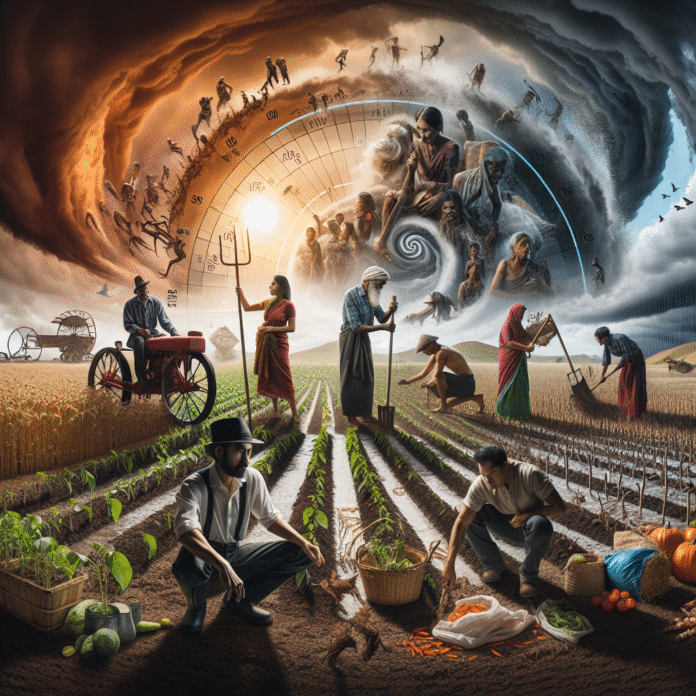Farmers Face Challenges in Sustaining Livelihoods
Farmers Face Challenges Amidst a Vicious Cycle Threatening Their Livelihoods
The agricultural sector is currently grappling with a series of daunting challenges that threaten the very livelihoods of farmers across the globe. These difficulties stem from a complex interplay of environmental, economic, and social factors, creating a vicious cycle that is increasingly difficult to escape.
Environmental Pressures
Climate change remains one of the most significant threats to farming. Extreme weather events, such as droughts, floods, and unpredictable seasonal patterns, have made it increasingly challenging for farmers to plan and execute their planting and harvesting schedules. Soil degradation and loss of biodiversity further exacerbate these issues, leading to lower crop yields and reduced resilience against pests and diseases.
Economic Strain
Farmers are also facing economic pressures due to fluctuating market prices for their produce. Many are unable to cover basic costs, leading to financial instability. Rising input costs, such as seeds, fertilizers, and equipment, compound these challenges, making it difficult for farmers to maintain profitability. In some regions, access to credit and financial resources is limited, further trapping farmers in a cycle of debt.
Social and Community Impacts
The social fabric of rural communities is also under strain. As farmers struggle to sustain their livelihoods, many are forced to make difficult decisions, such as selling land or reducing their workforce. This not only affects their immediate families but also has ripple effects throughout the community, leading to increased unemployment and a decline in local economies.
Potential Solutions
To combat these challenges, a multifaceted approach is required. Investment in sustainable farming practices, such as crop diversification and regenerative agriculture, can help build resilience against climate impacts. Additionally, providing farmers with access to education and resources on financial management can empower them to make informed decisions.
Moreover, government policies aimed at stabilizing market prices and providing safety nets during economic downturns could play a crucial role in supporting farmers. Collaboration among stakeholders, including governments, NGOs, and agricultural organizations, is essential to create a more sustainable future for farmers and their communities.
In conclusion, the struggles faced by farmers today are a result of interconnected issues that require urgent attention. By fostering resilience and implementing supportive measures, we can help break the cycle of hardship and ensure a sustainable and prosperous agricultural sector for future generations.
